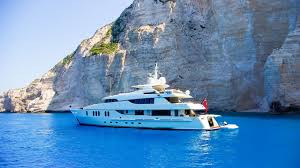Tips
Business Travel Cost Optimisation in Nigeria: A Strategic Guide for Multinational Companies

The volatile business environment in Nigeria, operational costs have risen as sharply and silently as corporate travel expenses in Nigeria. Whether it’s airfare, hotel rates, or local transport, companies are feeling the pressure.
In 2024 alone, a Nairametrics report showed how Nigerian companies listed on the Nigerian Exchange (NGX) collectively spent ₦164.4 billion on business travel and logistics. That’s a 93% increase compared to the previous year. The cause? Rising inflation, a weakened naira, fuel subsidy removal, and skyrocketing airline and accommodation costs.
For finance leaders, operations heads, and travel managers in multinational companies, these costs present both a risk and an opportunity. While the challenge is real, so too is the potential to control, optimize, and even reduce corporate travel spending through strategic systems.
This guide explores practical, data-backed approaches to managing business travel costs in Nigeria and without compromising employee comfort, productivity, or compliance.
The True Cost of Business Travel in Nigeria
Traveling for business in Nigeria is no longer a minor line item. It is a strategic expense category that, if unmanaged, can spiral into a drain on profitability.
1. Airfare Volatility
Travel between key cities such as Lagos, Abuja, and Port Harcourt is heavily reliant on air travel. Unfortunately, ticket prices have become unpredictable.
A one-way flight from Lagos to Abuja can cost between ₦130,000 and ₦250,000, depending on when it’s booked. With fuel prices surging and foreign exchange challenges persisting, most domestic fares have seen increases of over 40% in the past year alone.
2. Accommodation Costs
Corporate travelers in Nigeria typically require safe, well-rated hotels. That safety premium adds a significant cost burden:
- Budget hotels range between ₦35,000 and ₦110,000 per night
- Mid-range hotels fall between ₦25,000 and ₦50,000
- Luxury hotels, often needed for C-suite executives, exceed ₦100,000 per night
The overall availability of quality lodging in Tier 2 and Tier 3 cities also affects costs, forcing companies to pay more for fewer options.
3. Ground Transport & Local Logistics
Whether it’s daily intra-city movement or inter-city logistics, local transport costs continue to rise. From fuel and driver allowances to vehicle hire and security arrangements, many of these costs remain hidden until the expense report arrives.
4. Administrative Gaps
For companies without centralized booking systems or corporate policies, travel planning often falls to individual departments or employees. This leads to:
- Last-minute bookings with premium fares
- Duplicate bookings and non-compliant expenses
- Reimbursement delays
- Fraudulent claims
Why CFOs and Travel Managers Should Pay Attention
Business travel is no longer just an administrative responsibility. It’s a strategic cost center. When not properly tracked or optimized, it can reduce margins, distort budgets, and negatively impact employee morale.
CFOs and senior operations leaders must start seeing business travel as part of a broader cost control and governance strategy. With rising inflation, maintaining cost visibility is not a luxury. It’s essential.
Proven Strategies to Optimize Business Travel Costs
Here are the most effective, proven strategies multinational companies can adopt to reduce and control corporate travel spend in Nigeria.
1. Centralize Travel Through a TMC
A Travel Management Company (TMC) helps companies plan, book, and manage employee travel while ensuring compliance with internal policies. In Nigeria, partnering with a trusted TMC can offer:
- Discounted airfares and hotel rates through bulk booking
- Centralized bookings, reducing duplication and errors
- Policy compliance enforcement
- Real-time reporting and analytics
- 24/7 assistance for rebookings or emergencies
For example, a multinational mining company operating in Lagos reduced its travel spend by 38% in six months after consolidating its domestic bookings through Clooper, a regional travel management company.
2. Establish a Comprehensive Travel Policy
A corporate travel policy sets the rules for how employees travel on company business. A well-crafted policy reduces unnecessary expenses and improves predictability. Key components should include:
- Class of travel (economy vs. business class) based on job roles
- Hotel star ratings and nightly limits per employee grade
- Per diem allowances for food and incidentals
- Pre-approval workflows for all trips
- Preferred vendors or platforms for flights, hotels, and transport
To make this easier, Clooper offers businesses tools and templates to define, share, and enforce custom travel policies, streamlining planning and reporting across teams.
3. Book Early and Be Strategic with Timing
Late bookings are a major contributor to inflated travel costs. Encourage teams to plan ahead, especially for air and hotel reservations. This simple step alone can save up to 30% on average.
Recommendations:
- Book domestic flights at least 14 days in advance
- Avoid peak travel times (Monday mornings and Friday evenings)
- Combine multiple meetings into one trip to maximize value
- Avoid frequent short trips by encouraging longer, more comprehensive visits
4. Adopt Digital Tools for Expense Management
Manual tracking of travel expenses leads to delays, errors, and a lack of visibility. Moving to digital platforms allows for:
- Automated expense submissions
- Real-time cost monitoring
- Fraud detection through pattern analysis
- Faster approvals and reimbursements
Platforms such as SAP Concur, Zoho Expense, and Clooper’s business tools help Nigerian companies bring transparency into expense management, with the added advantage of vendor integrations and mobile accessibility.
5. Encourage Responsible and Sustainable Travel
Sustainability is no longer a buzzword. It’s a cost-saving principle. Businesses can reduce travel frequency by encouraging employees to:
- Use virtual meetings where possible
- Batch meetings during one trip
- Choose eco-certified hotels
- Reduce unnecessary room upgrades or services
Clooper, for example, helps companies prioritize sustainable short-term rentals and vetted accommodations that align with corporate sustainability values often at a lower cost than hotels.
A Step-by-Step Implementation Roadmap
If you’re ready to optimize your travel costs, follow this phased approach:
Phase 1: assessment and audit
Review current travel data. Identify where spending is concentrated and where inefficiencies or policy breaches exist.
Phase 2: policy development
Craft or update your travel policy. Include categories, limits, workflows, and preferred vendors.
Phase 3: technology and tmc tnboarding
Integrate digital tools. Engage a travel partner or platform like Clooper to handle bookings, accommodation, and vendor relationships.
Phase 4: training and rollout
Educate employees and managers. Make the policy easy to access. Align incentives to encourage adoption.
Phase 5: monitoring and optimization
Set KPIs such as cost per trip, policy compliance rate, and total travel spend. Use these to iterate and improve quarterly.
Local Context: Navigating Nigeria’s Unique Challenges
Nigeria’s travel landscape presents specific realities that global companies must account for:
- Inconsistent power supply at some hotels and airports
- Traffic congestion in cities like Lagos and Port Harcourt
- Flight cancellations or overbooking during peak seasons
- Security protocols for staff in sensitive locations
- Limited infrastructure in rural or developing areas
These factors underscore the importance of having flexible travel options, reliable partners, and on-the-ground knowledge.
The Return on Investment (ROI) of Smarter Travel
Implementing a clear, tech-supported, policy-driven travel system can deliver:
- Cost savings of 15% to 35%
- Faster reimbursements and fewer disputes
- Increased productivity for traveling staff
- Data visibility for finance and procurement teams
- Stronger compliance with both internal policies and external regulations
When integrated with broader operational goals like sustainability and employee satisfaction, a travel cost optimization program strengthens not just the balance sheet, but also the company culture.
Final Thoughts: A New Era of Business Travel Management
The days of informal travel bookings and open-ended budgets are over. In today’s economic climate, especially in challenging markets like Nigeria, strategic travel management is non-negotiable.
Following the frameworks and best practices outlined in this guide, multinational companies can regain control, save costs, and empower their teams to travel smarter.
Clooper is here to support your travel and accommodation needs, whether through corporate rentals, vetted travel partners, or tools to streamline policy enforcement. We believe that when travel is well-managed, companies grow stronger.




